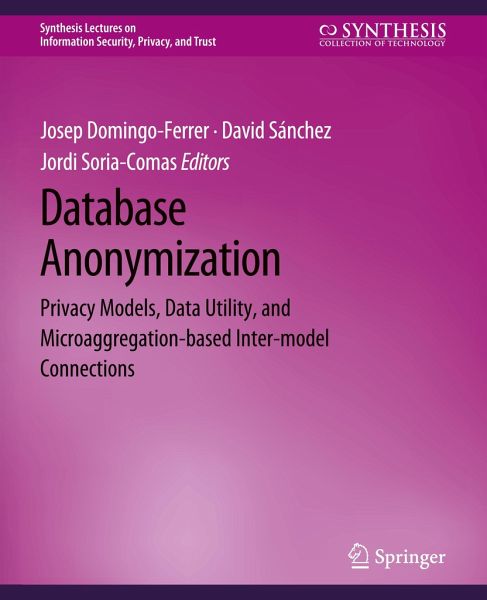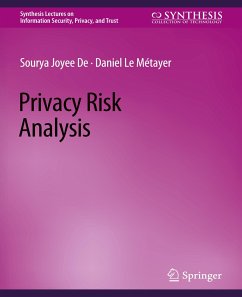
Database Anonymization
Privacy Models, Data Utility, and Microaggregation-based Inter-model Connections

PAYBACK Punkte
0 °P sammeln!
The current social and economic context increasingly demands open data to improve scientific research and decision making. However, when published data refer to individual respondents, disclosure risk limitation techniques must be implemented to anonymize the data and guarantee by design the fundamental right to privacy of the subjects the data refer to. Disclosure risk limitation has a long record in the statistical and computer science research communities, who have developed a variety of privacy-preserving solutions for data releases. This Synthesis Lecture provides a comprehensive overview...
The current social and economic context increasingly demands open data to improve scientific research and decision making. However, when published data refer to individual respondents, disclosure risk limitation techniques must be implemented to anonymize the data and guarantee by design the fundamental right to privacy of the subjects the data refer to. Disclosure risk limitation has a long record in the statistical and computer science research communities, who have developed a variety of privacy-preserving solutions for data releases. This Synthesis Lecture provides a comprehensive overview of the fundamentals of privacy in data releases focusing on the computer science perspective. Specifically, we detail the privacy models, anonymization methods, and utility and risk metrics that have been proposed so far in the literature. Besides, as a more advanced topic, we identify and discuss in detail connections between several privacy models (i.e., how to accumulate the privacy guaranteesthey offer to achieve more robust protection and when such guarantees are equivalent or complementary); we also explore the links between anonymization methods and privacy models (how anonymization methods can be used to enforce privacy models and thereby offer ex ante privacy guarantees). These latter topics are relevant to researchers and advanced practitioners, who will gain a deeper understanding on the available data anonymization solutions and the privacy guarantees they can offer.












